Nothing is going as planned. You can’t market virtual education programs like you anticipated earlier this year. Members and customers’ lives, needs, and interests have changed. Their pain points have changed, and their budgets have changed.
Your budget has probably changed too. Yet, your association’s need for revenue is greater than ever. Online learning programs have an important role to play, not only in generating revenue, but in safely and sustainably providing the education your professional community needs to do their jobs, advance their careers, and/or stay in business.
However, proceed with care. The folks at Twitter said: “This is not a marketing opportunity.” That’s obvious to those of us in the nonprofit community. However, it is an opportunity to help your members and customers navigate their way through the pandemic. You must market, just do it carefully and caringly.
Revisit marketing personas, goals, and strategies
With all the changes happening in your members and customers’ lives, it’s a good time to pull out the marketing personas you developed before the pandemic and give them a tune-up. Work and home environments have changed—and possibly merged. Members are facing different scenarios, depending on your industry.
• Their businesses have closed, are losing money, or shifting direction.
• They’ve lost their jobs or had their salary cut.
• Members are working long hours on the frontlines.
• They’re dealing with the challenges of working from home.
• Some are facing new responsibilities and/or new market conditions—just like you and your colleagues.
New member needs are emerging, yet they may not have the professional development budget they used to. Some have more time, but not the money. The certification program that used to be in reach is now just a dream.
Have your association’s strategic goals changed? If so, have your marketing goals and strategies realigned?
Given what you’re learning about your target audiences, you may need to develop new marketing plans—and not just one. You probably need a plan A, B, C, etc. so you can adjust to different future scenarios. You also need to rework your marketing messages in light of new market needs, new audiences, and changes in the lives of your usual audience.

Stay in this moment
Your gut is telling you, and it’s right, that you can’t market as usual. The marketing strategies and tactics you were relying on a few months ago may no longer be appropriate or relevant. It’s not a good time to push a program that seemingly has nothing to do with today’s challenges.
In a recent Edelman survey, 77% of respondents said “they want brands only to speak about products in ways that show they are aware of the crisis and the impact on people’s lives.”
You don’t want to be seen as opportunistic or desperate to sell programs now that your conference revenue is gone. People are on edge. They’re tired of getting spam in their inbox and especially resent tone-deaf intrusions. You must align what you offer to what your members and customers really need in the current situation.
Forget purely promotional emails. Instead, blend the informational and promotional. Provide information on a topic and remind people of the related resources you offer, both free and paid.
Make sure you can offer program options in all price ranges and formats, for example:
• Virtual discussion roundtables (free for members)
• Webinars (free and discounted)
• Online learning programs, both synchronous and asynchronous (range of prices)
• Virtual events (range of prices)
When in doubt, send draft marketing copy to a few members and get their take. How does it resonate with them?
If you understand what’s going on with your audience, and are sensitive to the challenges they’re experiencing, you’ll know how to market appropriately.
Market virtual education programs like a caring colleague would
We all need support and comfort right now. Your members and customers need help figuring out how to deal with the crappy situation they’re in as:
• Employees working from home with the rest of their family around
• Isolated professionals living alone
• Supervisors dealing with remote workforces for the first time
• Exhausted professionals on the frontlines of the pandemic
• Business owners dealing with [insert your industry’s pandemic scenario here]
They miss their loved ones. They miss socializing. They’re worried about the future—their job, business, health, and life as they knew it. They need some light in their life from people who get them—their association and fellow members. Sound familiar?
Take care with your words and actions. Write and behave like a person, a caring colleague, not an institution. Don’t be afraid to be human. People want to hear from people, not a department or organization.
For goodness’ sakes, don’t fall back on well-meaning but overused clichés like “unprecedented times” and “we’re all in this together.” Stay attuned to the language you hear everywhere that’s starting to turn people off so you can avoid using it. Otherwise, your message sounds like “blah blah blah” and they’ll tune it out.
Look at the images on your website and other marketing channels. Do they feature people in groups? You might not want to remind people of the good old days right now. Consider switching out to more current scenes—photos that people can relate to, for example, what their life looks like at work/home and with other members online.
Listen to your gut. You’re a consumer too, put yourself in your member’s shoes and imagine how your association is coming across.
Stay attuned to your members’ lives. Make some random calls to members and customers to get a better sense of what they’re dealing with and what they most need right now. Stay open to feedback. Let them know you’re listening.

Provide virtual stepping stones to online learning programs
Since most everyone is using online platforms these days to connect with co-workers, families, and friends, your audience is more prepared than ever to participate in virtual education programs. Get them used to coming to your association, website, and/or LMS for education by hosting virtual programs that provide both educational and networking opportunities: virtual conferences or summits, town halls, webinars, discussion breaks, and lunch and learns.
Market your virtual education programs as a sustainable approach to lifelong learning.
• Convenient: no travel or contact required, learn whenever you wish wherever you wish.
• On-demand: learn at your own pace, if you want to go back and review, you can.
• Social: expand your network by participating in an online course’s discussion forum or other group activities.
In a weak economy, learners can stand out from others in a competitive talent marketplace, by earning credentials, such as digital badges, certificates, and certifications. These resumé boosters demonstrate the mastery of competencies, making the learner more valuable to current and future employers.
Let members and customers know you have something for every career stage and budget. Design learning pathways they can follow. Get creative with packaging programs so you can meet a person’s needs beyond education, for example, early career learning pathways and/or credential with access to career center, or executive programs with access to an exclusive online community.
Rethink what you can temporarily offer for free to members and at a deep discount to non-members, or free for everyone in your community. Many associations are providing complimentary access to their COVID-19 related programs to anyone in their community. These programs extend goodwill and serve as natural stepping stones to programs people would expect to pay for. People will remember you as the association who was there for them when they needed it most.
We can’t predict what the future holds—there are too many models and experts providing changing and conflicting information. We make the best guesses based on the information in front of us. You will make mistakes, everyone is, but you will learn from them.
Keep your association’s mission firmly in mind as a touchstone when you’re developing marketing plans and messages. This grounding will help you make the right decisions and connect your valuable programs with the people who need them.






